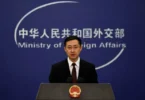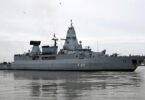MOSCOW (TASS): The defense ministers of Colle-ctive Security Treaty Orga-nization (CSTO) countries have held a meeting in Dus-hanbe in order to look into ways to strengthen the Ta-jik-Afghan border. Accor-ding to Russian Defense Minister Sergei Shoigu, the situation in Afghanistan is worsening and potential military threats, in addition to other dangers, require a-ppropriate responses, Neza-visimaya Gazeta writes.
The upcoming withdrawal of US and NATO troops is one of the reasons why the situation in Afghanistan is deteriorating. Experts say that the export of instability from the country will grow as drug trafficking is expected to rise, along with terrorists infiltrating into Commonwealth of Independent States (CIS) countries and into Europe.
“If the Americans and other NATO forces pull out of Afghanistan, I don’t rule out that radical Islamist groups will grab full power there,” retired Russian border guard Lieutenant Colonel Vitaly Lapshov pointed out. “The southern CIS regions will probably have to face the threat of aggression, and new routes for smuggling opium and heroin into CIS countries and Europe will emerge,” he predicted.
Head of the Research and Analytical Center at the Russian Academy of Sciences’ Institute for Oriental Studies Nikolai Plotnikov noted that the Taliban controlled 85% of the Afghan areas where opium poppy is cultivated. Heroin production reached about 10,000 tonnes in the past three to five years, which is a headache for CIS countries.
Military expert Colonel Yuri Ivanov pointed to issues on the Turkmen-Afghan border. “Some believe that large amounts of drugs pass through Turkmenistan on their way from Afghanistan to Eur-ope. The route lies through the Caspian Sea region, it encompasses Russia, Kaza-khstan and Azerbaijan,” the expert stressed. It is only possible to disrupt the route on the Caspian Sea and Russia’s southern border. This is a very complicated issue and it is Russia that will have to address it rather than the CSTO, Ivanov emphasized.






